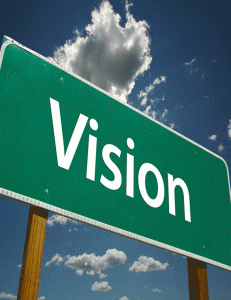 What are you hopes, goals and dreams for your life? How many of your goals or dreams for your life are tied to money or dependent upon money to achieve them? Many of our personal goals are tied to money. Not money itself, but the lifestyle or financial freedom that is a result of our financial achievements. Therefore, it is essential that we work on improving our knowledge of money, personal finances i.e. our financial literacy
What are you hopes, goals and dreams for your life? How many of your goals or dreams for your life are tied to money or dependent upon money to achieve them? Many of our personal goals are tied to money. Not money itself, but the lifestyle or financial freedom that is a result of our financial achievements. Therefore, it is essential that we work on improving our knowledge of money, personal finances i.e. our financial literacy
We must be willing to accept full responsibility for the outcome of our lives. This is why our vision and goals for our life are so important. They can inspire and empower us.
People become empowered to take action to transform their lives when they learn that they have the ability to impact their lives, to achieve their goals and make their dreams become a reality. This realization or breakthrough creates hope for the future. It is this hope for the future that will compel people to take action, to stay the course, to overcome setbacks and to make conscious choices on a daily basis to move closer to their goals.
History is full of compelling stories of individuals who overcame adversity, lack of education, physical limitations, lack of financial resources, etc. to accomplish great things in their lifetimes. They were able to accomplish these great feats because they had a crystal clear vision of what they wanted to accomplish in their lives. They were unwilling to accept failure or be deterred from achieving their vision for their life.
Therefore, it is essential that we work on developing a crystal clear vision for our lives. This is the first step in our pursuing Financial Literacy for our lives. Financial Literacy is not just about the money. It is all about understanding the power of money, the impact of our financial choices, and how we can use our financial resources to accomplish our goals for our lives.
Everyone wants to achieve financial independence but few people actually achieve it. Why? Most people end up consuming their future by the financial choices they make every day. They never stop to consider the how their financial decisions today will impact their future. Unfortunately, many people never received any formal education in school regarding financial principles on money, budgeting, investing, etc. Therefore, they were at a disadvantage from an early age. For many people their only source of input on money came from their parents. Well intentioned parents may have never received any formal education on money during their lifetimes as well. Therefore, they may not have been the best source of information or set the best example with their personal finances for their families.
However, there is a group of people who achieve financial independence. There was a great book written that examined the lives, lifestyles and financial habits of self-made millionaires. There are no get rich quick stories. It is about average people who achieved above average results in their lives. The common denominator is revealed as you see the similarities in their lives. The book will provide you encouragement and insights into achieving the same goals for your life.
The book is “The Millionaire Next Door” by Thomas J. Stanley Ph.D. and William D. Danko Ph.D. Here is a link to Google Books for a preview and review of the book. http://bit.ly/asJ15s
It is interesting to note that approximately 80% of the people who achieved financial independence did so on their own, they did not inherit their money. They worked hard, lived conservatively, learned sound financial principles and became financially independent. These statistics should provide hope and encouragement for any person who wants to take control of their finances and move closer to financial independence. It all starts with a vision of what can be possible for our lives when we see that it became a reality in other people’s lives.
Therefore, It is critical that you stop and take some time to reflect on what you want, why you want it, what will it give you. This will help you create a vision for your life. Here are some questions to help you start working on creating a clear and concise vision for your life. A vision that you are passionate about achieving in your life. The list is not all-inclusive, but is only meant to serve as a reference to help get you started. It is your life and your future. Think Big and don’t limit yourself!
Questions to help you create a compelling vision and goals for your life
What are your hopes and dreams for someday?
What’s missing in my life?
What are you passionate about?
What things do you value most in life?
What gives you meaning and purpose in your life?
What is your idea of the perfect life?
What would it look it?
Where would you live?
How would you spend your time?
How would you touch and impact others lives?
What your natural gifts and talents? Are you using them to your benefit?
Are you living a balanced life?
What things do you value most in life?
What are you committed to personally that would be bring balance to your life?
How much money do you want to make?
What would you do with the money?
Why is being successful important to you?
How would you use your success to help others?
Vision Planning – This is the first step to creating a compelling vision for your life. You need to take your answers and insights from your planning questions and clearly articulate the vision for your life. This needs to be written as if it has already occurred in your life. I suggest writing from the perspective of a journal entry reflecting back on your awesome life at a given point in time in the future that you select. For example, a key birthday, a specific date like 12/31/2020. This vision for your life must be written be so clear that you can see it, feel it, touch it and experience it as if it has already occurred in your life.
Convert your vision into specific goals and commitments. Once you have clarified your vision for your life and committed your vision to writing, it will be much easier to establish meaningful goals. You want goals that will inspire you to take action. Goals that keep you committed to achieving your goals and ultimately the vision for your life. Why? Because your vision for the future will compel you take action today.
What actions MUST you take to achieve your goals? Break them down yearly, monthly, weekly daily. Nothing meaningful ever happens with our hopes, dreams or goals for our lives until we commit to a “specific date” that we will achieve our goals. Therefore, once you have committed to these dates, you are on a path to achieve your goals. Next you can start creating an action plan to achieve the goals you set for yourself. Therefore, you must take your goals and break them down into measurable tasks, activities and results that you can measure. This provides you a basis for tracking your progress and celebrating the achievement of your short-term goals and successes on the way to celebrating the achievement of your ultimate vision for your life.
What are your personal commitments to achieving your goals? You can create an awesome vision for your life, set specific goals and create action plans to help you achieve your vision for your life. However, without an unwavering personal commitment to changing your habits, actions and thoughts you will never achieve them. You need to realize that there will be setbacks, road blocks, break downs along the way to achieving the ultimate vision for your personal life and finances.
However, just like with every other person who has achieved something meaningful in their lives, they remained committed to their goals, hopes and dreams for their lives. They were unwilling to accept failure or be deterred from achieving their vision for their lives. Therefore, I suggest you read and reaffirm your vision for your life on a daily basis. Think about it, dwell on it and act on it every day until it becomes a reality in your life. You can achieve your dreams…..
I hope this blog post has added value to your life. I hope it has inspired you to take action. If so, I hope you will forward this post to someone else who might benefit and become inspired in their lives. You can follow my posts on Twitter as well.
The focus of this blog will be Financial Literacy. The goal of Financial Literacy is to help educate and empower people transform their lives in a way that not only touches and impacts their lives but also gives them the resources to touch and impact others lives. That is why I have created Fiscal Literacy.
I wanted to leave you with a compilation of famous quotes on the subject of vision, goals, etc. I hope they inspire you to take action in your life today, not someday….
Inspirational Quotes
“People never plan to be failures; they simply fail to plan to be successful” William Ward
“Vision is the art of seeing the invisible” Jonathon Swift
“Goals are not only absolutely necessary to motivate us. They are essential to really keep us alive” Robert Schuller
“Goals determine your thoughts – thoughts determine your life” Anonymous
“The greatest thing limiting ourselves, is our conversation with ourselves” Scott Cummings
“Your life is an expression of all of your thoughts” Marcus Aurelius
“What the human mind can conceive and believe, it can accomplish” David Sarnoff
“Some men succeed because they are destined to, but most men because they are determined to succeed” Anonymous
“Success if it is to be, it is up to me” Anonymous
“Only those who dare to fail greatly can ever achieve greatly” Robert F. Kennedy
“If one advances confidently in the direction of his dreams and endeavors to live the life which he has imagined, he will meet with success unexpected in common hours.” Henry David Thoreau
I hope you will follow Fiscal Literacy on Twitter, Facebook or subscribe via email to receive personal finance, news and updates.
Copyright © 2011 FiscalLiteracy.com, All Rights Reserved
 The Federal Housing Finance Authority recently announced that the Home Affordable Refinance Program, (HARP) would be extended through June 30, 2012. This is great news for millions of homeowners that are making their monthly mortgage payments but are unable to refinance their current mortgage due to the decrease in their home value. As a result of the decreased home value, they do not have sufficient equity to qualify to refinance their home under the current lending guidelines. An additional benefit of this program is that a homeowner would not be required to add mortgage insurance to the new mortgage loan (payment) if their current loan does not have mortgage insurance. This applies even if the loan-to-value on the new loan exceeds 80%.
The Federal Housing Finance Authority recently announced that the Home Affordable Refinance Program, (HARP) would be extended through June 30, 2012. This is great news for millions of homeowners that are making their monthly mortgage payments but are unable to refinance their current mortgage due to the decrease in their home value. As a result of the decreased home value, they do not have sufficient equity to qualify to refinance their home under the current lending guidelines. An additional benefit of this program is that a homeowner would not be required to add mortgage insurance to the new mortgage loan (payment) if their current loan does not have mortgage insurance. This applies even if the loan-to-value on the new loan exceeds 80%.

 What are you hopes, goals and dreams for your life? How many of your goals or dreams for your life are tied to money or dependent upon money to achieve them? Many of our personal goals are tied to money. Not money itself, but the lifestyle or financial freedom that is a result of our financial achievements. Therefore, it is essential that we work on improving our knowledge of money, personal finances i.e. our financial literacy
What are you hopes, goals and dreams for your life? How many of your goals or dreams for your life are tied to money or dependent upon money to achieve them? Many of our personal goals are tied to money. Not money itself, but the lifestyle or financial freedom that is a result of our financial achievements. Therefore, it is essential that we work on improving our knowledge of money, personal finances i.e. our financial literacy Are you ready to take control of your personal finances, get control of your spending and work on achieving the goal of getting freed up financially? If so, I challenge you to take the Show Me The Money – Challenge during April’s National Financial Literacy Month. The show me the money challenge is the first step in taking control of your personal finances and transforming your financial life.
Are you ready to take control of your personal finances, get control of your spending and work on achieving the goal of getting freed up financially? If so, I challenge you to take the Show Me The Money – Challenge during April’s National Financial Literacy Month. The show me the money challenge is the first step in taking control of your personal finances and transforming your financial life. For millions of families and individuals their lifestyle choices are consuming their financial future. Why? Because they are only able to support their lifestyle through the use of credit cards and consumer loans for automobiles, boats, RV’s, etc. As a result of their personal debt and lifestyle choices, they are unable to save any of their hard earned money for themselves to their fund retirement accounts, pay college tuition for their children or even fund a simple savings account.
For millions of families and individuals their lifestyle choices are consuming their financial future. Why? Because they are only able to support their lifestyle through the use of credit cards and consumer loans for automobiles, boats, RV’s, etc. As a result of their personal debt and lifestyle choices, they are unable to save any of their hard earned money for themselves to their fund retirement accounts, pay college tuition for their children or even fund a simple savings account. A personal budget is absolutely critical for anyone that is committed to taking control of their personal finances. Why? Because a budget provides us the input we need to manage our income, track our expenses, improve our cash flow to payoff debt and start a savings plan. A personal budget provides us a tool to work on achieving our financial goals. It is the first step in taking control of our personal finances.
A personal budget is absolutely critical for anyone that is committed to taking control of their personal finances. Why? Because a budget provides us the input we need to manage our income, track our expenses, improve our cash flow to payoff debt and start a savings plan. A personal budget provides us a tool to work on achieving our financial goals. It is the first step in taking control of our personal finances. It is a lack of personal savings that forces us to use our credit cards or obtain personal loans to pay for the expenses we incur in our lives. Many of these expenses are unplanned expenses for car repairs, kid’s braces, home repairs, etc. We also use our credit cards for pay for other large expenses i.e. vacations, holiday shopping, home furnishings, etc. These large expenses dramatically impact our overall debt, increase the costs of every purchase due to the interest we pay over time, and also reduces or eliminates our ability to save money and fund our retirement on a monthly basis. A cash cushion is a simple financial solution.
It is a lack of personal savings that forces us to use our credit cards or obtain personal loans to pay for the expenses we incur in our lives. Many of these expenses are unplanned expenses for car repairs, kid’s braces, home repairs, etc. We also use our credit cards for pay for other large expenses i.e. vacations, holiday shopping, home furnishings, etc. These large expenses dramatically impact our overall debt, increase the costs of every purchase due to the interest we pay over time, and also reduces or eliminates our ability to save money and fund our retirement on a monthly basis. A cash cushion is a simple financial solution. How many of you had a piggy bank when you were growing up? I had one of the classic ceramic piggy banks that you had to break at some point to get out the money. I always remember how excited I got every time I dropped coins into the piggy bank through the small slot of top of the piggy bank. I would pick up the piggy bank to feel the weight of all of the coins and shake it to hear all of my money in the bank. It was an incredible day when I got to break open my piggy bank and see all the coins spill out on the table. My eyes lit up with amazement at all of the money that had accumulated. I could not wait to take my hard earned money that I had saved and spend it. It was an incredible feeling to walk into the store with all of my money and pay cash to buy that cool toy I had been dreaming about for months.
How many of you had a piggy bank when you were growing up? I had one of the classic ceramic piggy banks that you had to break at some point to get out the money. I always remember how excited I got every time I dropped coins into the piggy bank through the small slot of top of the piggy bank. I would pick up the piggy bank to feel the weight of all of the coins and shake it to hear all of my money in the bank. It was an incredible day when I got to break open my piggy bank and see all the coins spill out on the table. My eyes lit up with amazement at all of the money that had accumulated. I could not wait to take my hard earned money that I had saved and spend it. It was an incredible feeling to walk into the store with all of my money and pay cash to buy that cool toy I had been dreaming about for months. Frugal living is about making conscious choices with our time and our money. It allows us to free up our resources so that we can pursue the things in life that really matter to us. Frugal living is something that each of us needs to quantify and define in our own lives. Unfortunately, many people do not want to consider living a “frugal lifestyle” because they think it means living the life of a miser and never spending a dime or doing anything fun.
Frugal living is about making conscious choices with our time and our money. It allows us to free up our resources so that we can pursue the things in life that really matter to us. Frugal living is something that each of us needs to quantify and define in our own lives. Unfortunately, many people do not want to consider living a “frugal lifestyle” because they think it means living the life of a miser and never spending a dime or doing anything fun. The first step to financial independence and debt free living is to control your spending. We live in a consumer driven world that encourages the use of credit for every purchase. As a result, Americans are burdened by excessive consumer debt. A recent report by the Federal Reserve stated that Americans owe approximately 826 billion in revolving credit card debt. The burden of this debt is overwhelming families and robbing them of their hopes and dreams for the future.
The first step to financial independence and debt free living is to control your spending. We live in a consumer driven world that encourages the use of credit for every purchase. As a result, Americans are burdened by excessive consumer debt. A recent report by the Federal Reserve stated that Americans owe approximately 826 billion in revolving credit card debt. The burden of this debt is overwhelming families and robbing them of their hopes and dreams for the future. The financial crisis has impacted the lives of millions of people. Therefore, there has never been a more important time than now to educate and empower yourself to take control of your own personal finances. Here are some ideas and proven financial concepts that can dramatically impact your personal life and finances. I hope you will take the time to read through them. More importantly, I hope you will take the time to implement some of these ideas into your own personal finances.
The financial crisis has impacted the lives of millions of people. Therefore, there has never been a more important time than now to educate and empower yourself to take control of your own personal finances. Here are some ideas and proven financial concepts that can dramatically impact your personal life and finances. I hope you will take the time to read through them. More importantly, I hope you will take the time to implement some of these ideas into your own personal finances.

